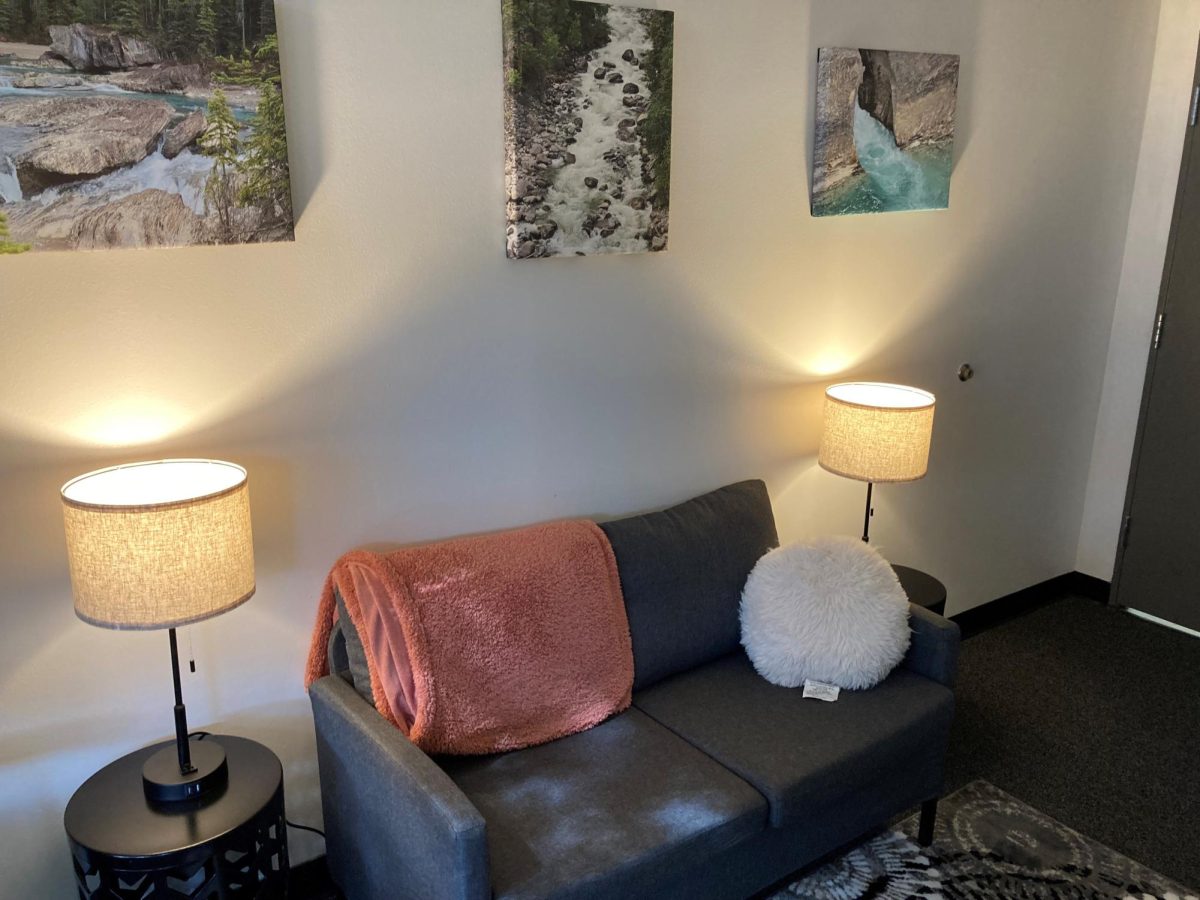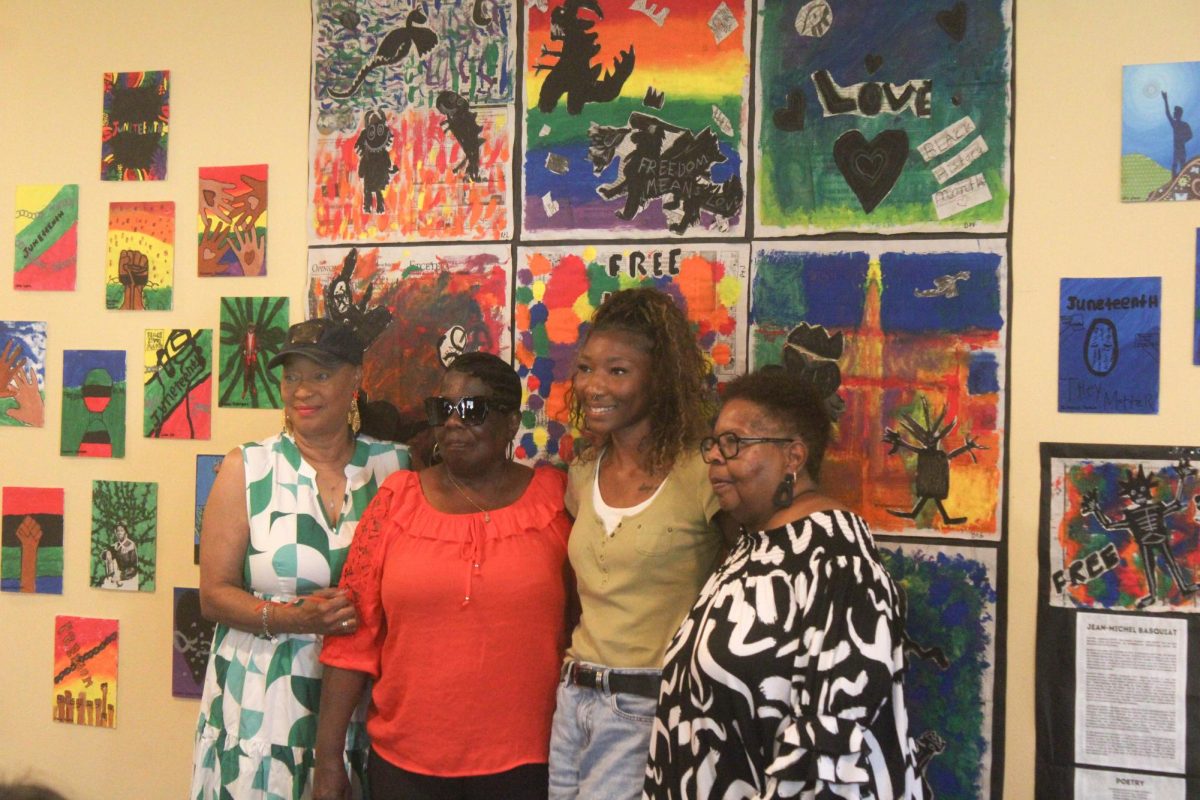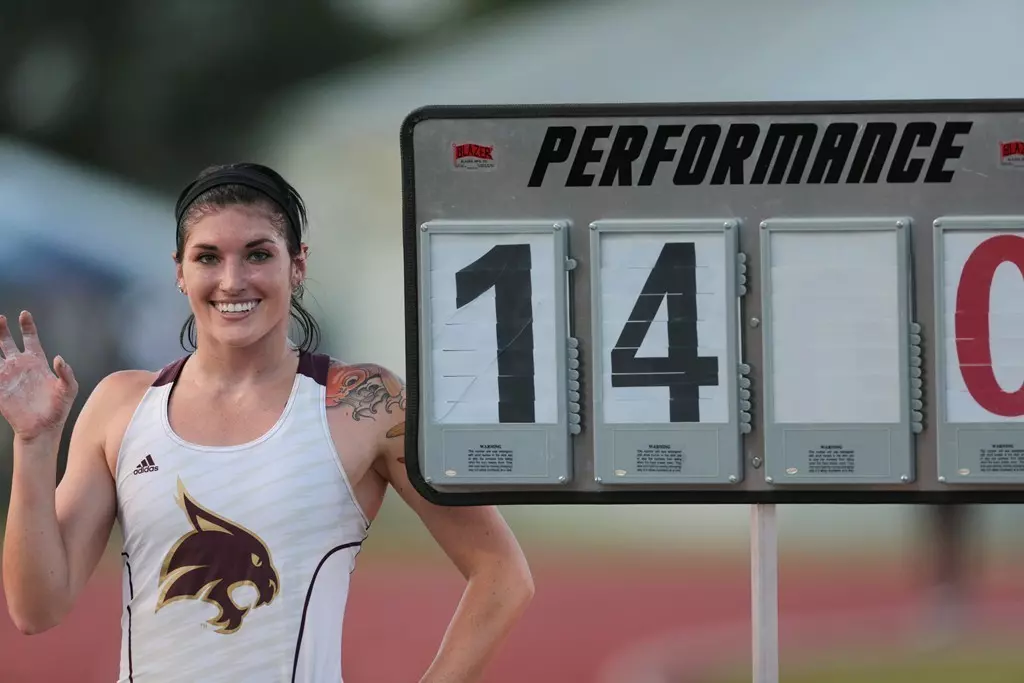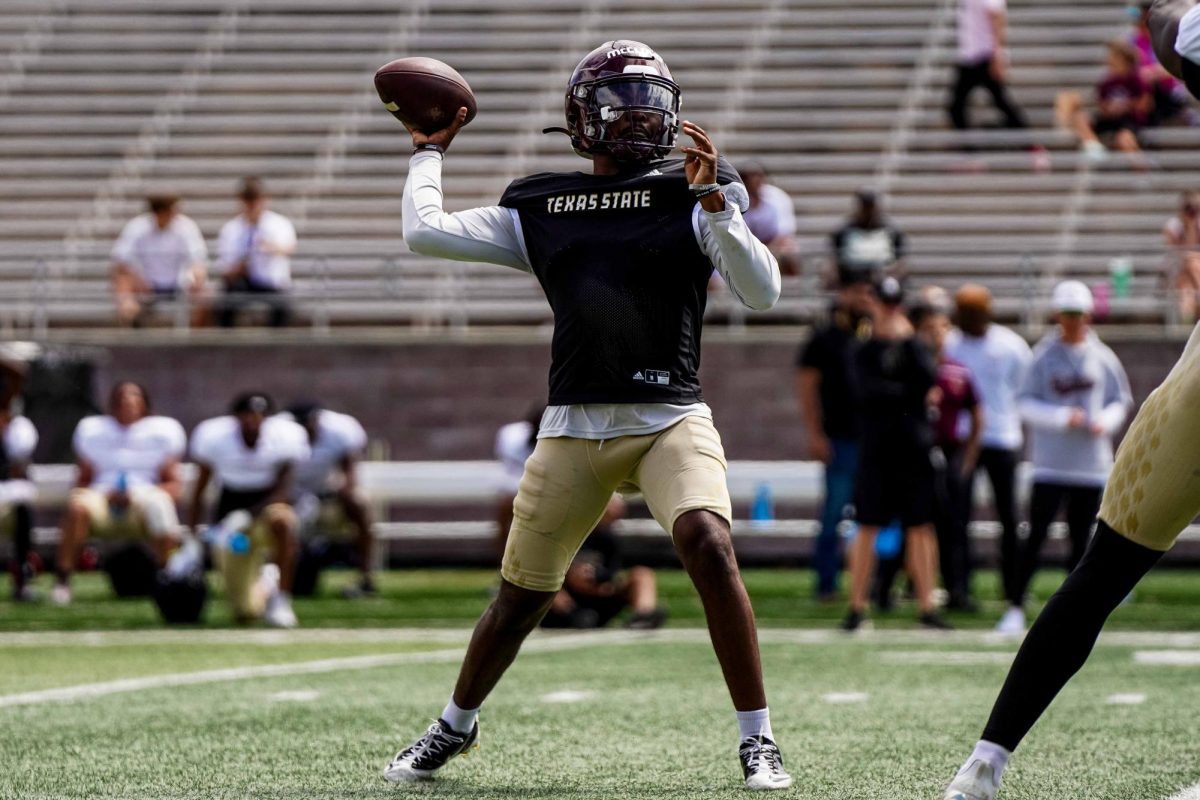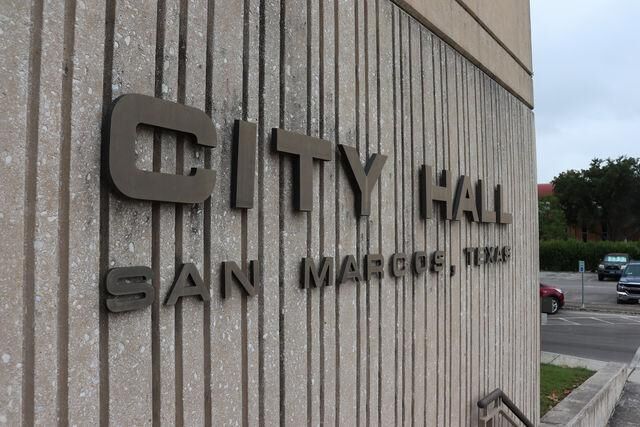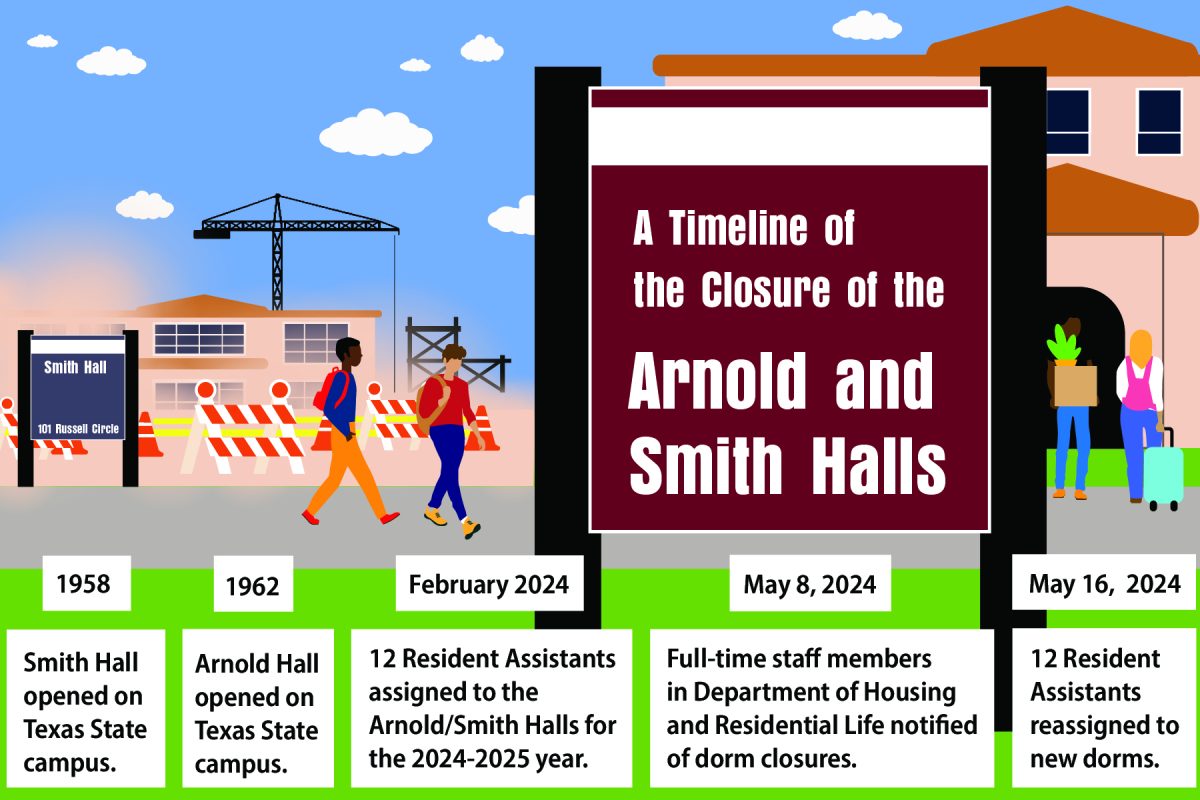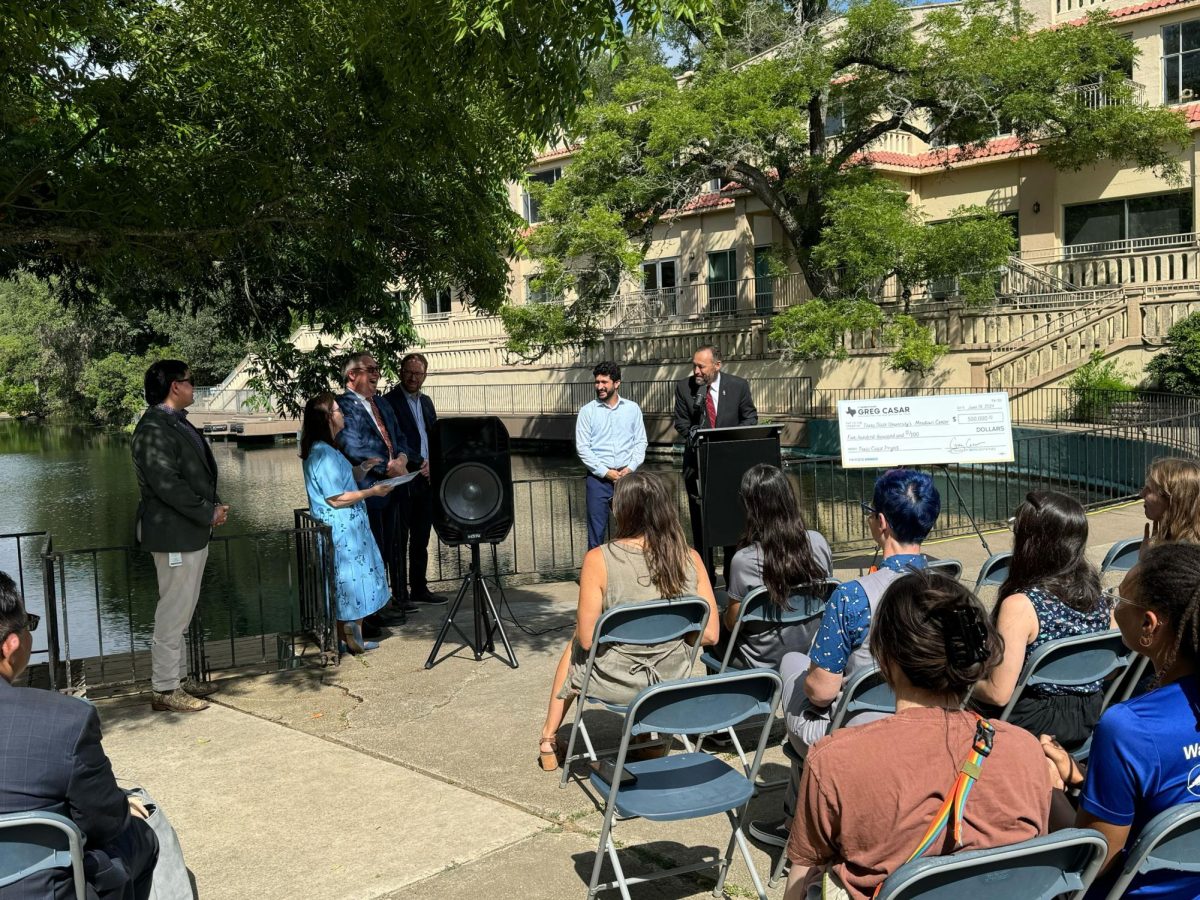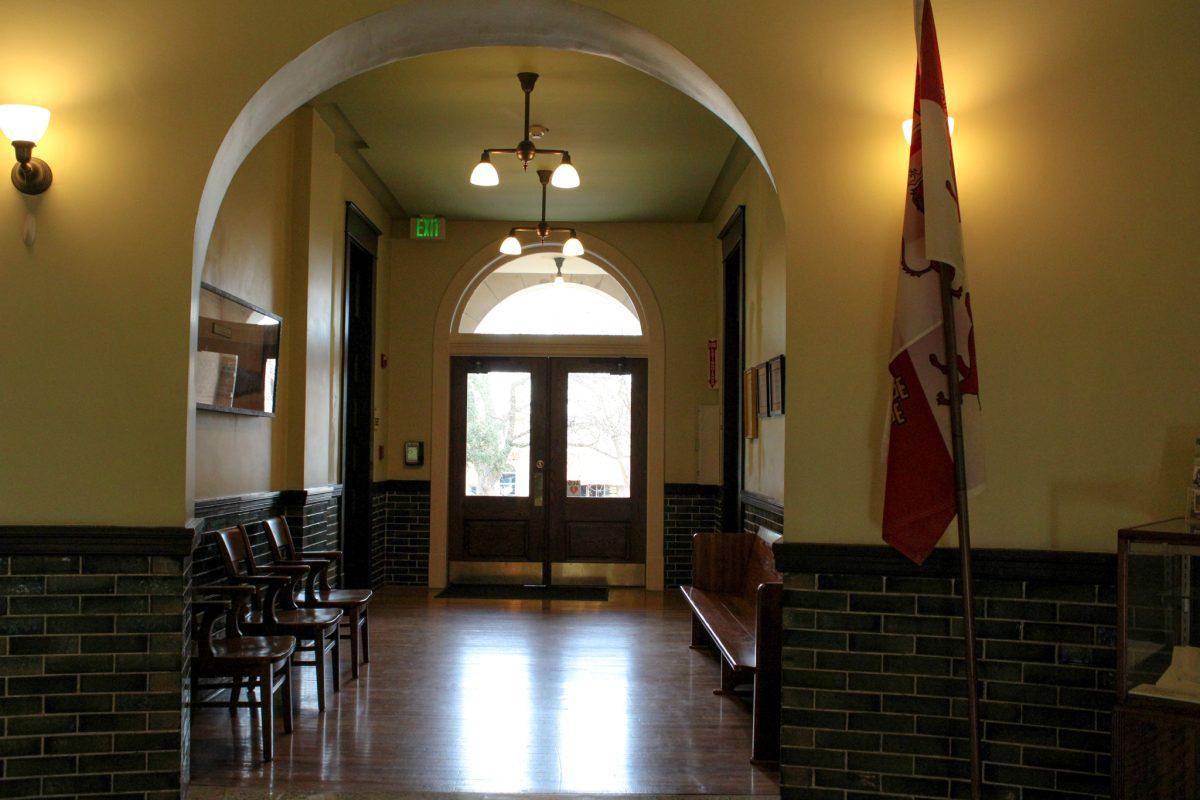This article contains discussions of domestic violence.
“Stark” and “cold” are words domestic abuse survivor Denise Fonseca used to describe the interview rooms at the Dripping Springs Precinct. To alleviate that similar chilling atmosphere and provide more comfort for victims, the San Marcos Police Department (SMPD) introduced a “soft interview room” in September.
A soft interview room is a comfortable space designed to put interviewees, specifically victims or survivors, at ease. The rooms have different elements such as specific lighting, colorful carpet and soft blankets, fostering a relaxed atmosphere conducive to open and honest conversations.
The $982 funding for this room came as a donation from Kissing Tree Backs Our Blue, a police support group. Members of SMPD also donated toys and blankets.
SMPD Daytime Patrol Sgt. Andrew Sparenberg said he got the idea for this room almost 16 years ago when his loved ones were victims of a violent crime. When he picked them up, they were in a room with a sofa, blankets and a comfortable environment.
“You can’t fix the bad thing that’s happened to somebody,” Sparenberg said. “But you can perhaps make it a little bit better at that time, while you’re hoping they will use their voice or get their voice back.”
Fonseca is also the founder of Room2Hope, a non profit initiative she started in 2018, to help survivors by transforming victim waiting rooms in police stations and courthouses to feel safer.
The room SMPD renovated is the victim waiting room at the police station, which is one of the first rooms a survivor will encounter when they’re a victim of violent crime. According to Fonseca, that is when a victim is in their most vulnerable state.
Fonseca said when she was on her 19-month-long journey to justice, she was in and out of interview rooms, and all of them were cold and intimidating.
“I remember saying to [a victim assistant coordinator] ‘Why are these rooms so cold and heartless and worn out and shabby and tired, and lacking in any sense of caring?’” Fonseca said. “I want my rooms to feel like they’re giving you a hug.”
Before the soft interview room at SMPD, the space had three metal chairs, a desk, a filing cabinet and a computer screen.
“There’s the bright fluorescent lights, and something about it being so industrial in there, you just feel like you’re part of a machine,” Sparenberg said. “I don’t think that opens people up or is helpful to get them to break down their walls and talk about what happened.”
Dr. Naomi Medina, a psychology professor, said when someone experiences a traumatic event, it can be hard to talk about it, but even more so when they’re in an uncomfortable environment.
“When someone has suffered, and you place them in a room that’s cold, and chairs are hard and it’s where other people who are suspects in crimes have been questioned, this could validate a victim who is already feeling they’re responsible for what happened to them,” Medina said.
The room has a window that leads to the courtyard, comfortable seating and soft lighting instead of harsh fluorescent lights. There are also books for kids, beanbags, blankets and a video monitor that plays movies.
“The benefits of providing a conducive environment with sensory elements is beyond just the questioning, the benefit is for the rest of their lives,” Medina said.
Fonseca said these soft rooms create a comforting environment for survivors but also help law enforcement extract the information they need to get the victim justice.
Fonseca said these soft rooms improve law enforcement’s performance because officers feel proud of the space they’re in when bringing victims for interviews. It’s a space they want to be associated with. SMPD already sees a difference.
“I had someone who was in a mental health crisis and [their case] started out in the regular, old interview rooms, and they had so much more progress in the new room,” Sparenberg said.











